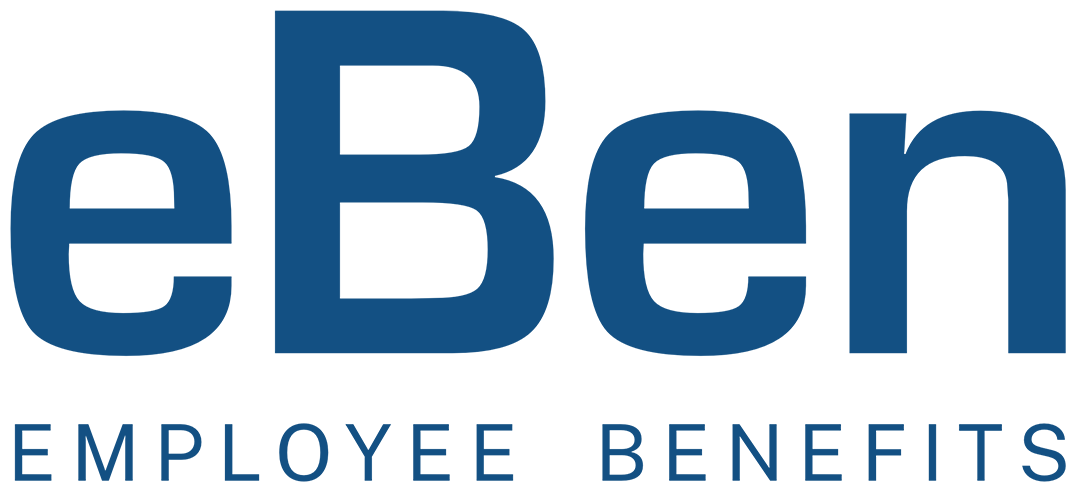Summary: On November 15, 2024, a federal district court in Texas struck down the U.S. Department of Labor’s (DOL) recent final rule (Final Rule) increasing the salary thresholds for certain “white collar” exempt employees under the Fair Labor Standards Act (FLSA).
The court ruled the DOL overstepped its authority with this recent Final Rule increasing the minimum salary for exempt employees. This ruling sets aside the Final Rule’s increases to the standard salary level nationwide, returning the salary threshold to the pre-July 2024 threshold.
Read on for more information and employer considerations in light of this recent federal court ruling.
RxDC Reporting Background
The CAA, passed by Congress in December 2020, included a requirement for group health plans (and health insurers) to submit detailed prescription drug pricing and healthcare spending data to CMS, aimed at increasing transparency in prescription drug and health care spending.
This data, referred to as “Prescription Drug Data Collection” or the RxDC report, is collected and aggregated by CMS[1], which in turn publishes public reports on prescription drug spending and pricing, along with spending on health care services and premium paid by members and employers. The “Prescription Drug Spending, Pricing Trends and Premiums in Private Health Insurance Plans” report, accessed here, was published for the first time in November 2024.[2]
Many employer group health plan sponsors relied on their reporting entity vendors, such as plan carriers, third-party administrators (TPAs), and/or pharmacy benefit managers (PBMs),
to submit the required RxDC reporting data to CMS for the prior year deadlines, which began in 2022.
These reporting entity vendors compile and maintain the required data on behalf of the plans and are in the best position to complete the technical requirements for RxDC reporting. Group health plan sponsors should continue this approach for their RxDC reporting for the 2024 reference year as the June 1, 2025 deadline approaches.
- Fully Insured Health Plans: Employers with fully insured health plans should rely on their health insurance carriers to submit the RxDC report on their behalf by entering into a written agreement with their carriers. These plan sponsor employers are advised to request confirmation from their carriers that they will be submitting the report(s) in a timely manner, well in advance of the June 1, 2025 deadline.
- Self-Funded/Level-Funded Health Plans: Employers with self-funded health plans (including level-funded plans) are directly responsible for this reporting requirement but should still contract with their vendors (e.g., TPAs and/or PBMs) to report the data on their behalf via a written agreement. However, as with most plan compliance obligations, if a vendor fails to submit the required data, the self-funded plan bears the ultimate responsibility for such failures.
Covered Health Plans
The table below captures which health plans are required to submit RxDC reporting to CMS:
| Type of Health Plan | Required to Submit RxDC Report? (Yes/No) |
|---|---|
ERISA group health plans[3] including:
|
Yes |
| Non-federal governmental plans, such as plans sponsored by state and local government | Yes |
| Church plans subject to the Internal Revenue Code | Yes |
Individual health coverage plans including:
|
Yes |
| Health Reimbursement Arrangements (HRAs) and other account-based plans. | No |
Excepted benefits including, but not limited to:
|
No |
| Retiree-only plans | No |
| Medicare and Medicaid plans | No |
| Plans maintained outside of the U.S. primarily for the benefit of persons substantially all of whom are nonresident aliens. | No |
Required Reporting Data
The RxDC reports are required to include the following information:
- General information on the plan or coverage, such as the beginning and end dates of the plan year, the number of participants, beneficiaries, or enrollees (as applicable), and each state in which the plan or coverage is offered;
- The 50 brand prescription drugs most frequently dispensed by pharmacies for claims paid by the plan and the total number of paid claims for each drug;
- The 50 most costly prescription drugs with respect to the plan by total annual spending and the annual amount spent by the plan for each drug;
- The 50 prescription drugs with the greatest increase in plan expenditures over the prior plan year and, for each drug, the change in amounts expended by the plan in each plan year;
- Total spending on health care services by the group health plan, broken down by the type of costs; the average monthly premium paid by employers (as applicable) and by enrollees; and any impact on premiums by rebates, fees, and any other remuneration paid by drug manufacturers to the plan; and
- Any reduction in premiums and out-of-pocket costs associated with rebates, fees, or other remuneration.
Practical Tips & Reminders
While the updated RxDC reporting instructions do not contain any changes from the previous year’s instructions, the items below are included as helpful practical tips and reminders for employers to complete this plan compliance requirement:
- RxDC report content: The RxDC report collects information related to prescription drugs, total spending on health care services, including health care premium, enrollment, and spending broken down by hospital costs, provider and clinical service costs for primary and specialty care (separately), and other medical costs, including wellness services.
- Reference Year: The reference year is the calendar year immediately preceding the calendar year in which the RxDC report is due. The RxDC report for the 2024 reference year, which is due in 2025, should contain information based on what happened in calendar year 2024.
- Reporting entity: An entity that submits some or all required information with respect to a plan, issuer, or carrier is called a reporting entity.
- Plan offering medical benefits only and no pharmacy benefits: Plans subject to RxDC reporting requirements offering only medical benefits and no pharmacy benefits are still required to report a plan list (P1, P2, or P3), data files D1 and D2, and a narrative response to report the required information about the plan’s medical benefit. These plans do not need to submit data files D3 – D8.
- Terminated plans: The updated instructions state, “For self-funded terminated plans, reporting entities may choose to include or exclude the business associated with the terminated plan. For fully insured terminated plans, reporting entities should include the business associated with the terminated plan.”
- Multiple vendor data submission: Employer plan sponsors can coordinate with multiple third-party reporting entity vendors to submit data on behalf of their group health plan.
Example: A self-funded group health plan may contract with a TPA to submit the Spending by Category data file (D2) and separately contract with a PBM to submit the Top 50 Most Costly Drugs file (D4). The submission for a plan is considered complete if CMS receives all required files, regardless of who submits the files.
- Vendor changes: If a plan changes vendors during the reference year (such as changing a TPA or PBM), two reporting options are available:
- The previous vendor reports the data from the period prior to the change, and the new vendor reports the data from the period beginning on the date the change was effective; or
- The previous vendor provides the data to the new vendor and the new vendor reports the entire year of data.
- Non-calendar year example: If necessary, the instructions provide direction on how to complete the plan list for plans with non-calendar plan years with an example:
Plan year is July 1, 2023 through June 30, 2024:
- Enter 07/01/2023 for the beginning date and 06/30/2024 for the end date in the 2024 RxDC report.
- Since the plan year ended before the end of the reference year, enter 0 for the number of members as of 12/31/2024 in the 2024 RxDC report.
- Similarly, if the plan year is July 1, 2024 through June 30, 2025, enter 07/01/2024 for the beginning date and 06/30/2025 for the end date in the 2024 RxDC report.
- Enter the actual number of members as of 12/31/2024 in the 2024 RxDC report.
- If a plan renews in the middle of the reference year, use two rows in the plan list file
- one row for the plan year that ended on 6/30/2024 and
- another for the plan year that began on 7/1/2024.
Illustrative Example: Non-calendar year plan in the 2024 RxDC report.
Group Health Plan Name Group Health Plan Number Market Segment Plan Year Beginning Date Plan Year End Date Members as of 12/31 of the reference year Employer X’s Health & Welfare Plan 501 Small group market 07/01/2023 6/30/2024 0 Employer X’s Health & Welfare Plan 501 Small group market 07/01/2024 6/30/2025 27 - Submission confirmation: CMS does not have a mechanism to notify health plans when data has been submitted on their behalf. To confirm submission, plans are advised to contact their reporting entities directly.
- Help desk support: For escalated support with RxDC reporting, contact the help desk at CMS_FEPS@cms.hhs.gov. Include “RxDC” in the body of the email to expedite processing. Responses are typically expected within the same day and a full resolution within 1-2 weeks. The help desk can also be reached by phone at
855-267-1515.
Employer Next Steps
As the June 1, 2025 deadline approaches for the 2024 reference year RxDC reporting, many reporting entity vendors have already reached out to plan sponsor employers with requests for required information to complete the required data fields. Employers are advised to take note of the upcoming deadline and promptly respond to vendor requests with the required information to ensure timely completion and submission of their 2024 reference year RxDC reporting.
As a reminder for those employers whose plan vendors will not submit all of the required RxDC reporting data on their behalf, they will need to register directly through the CMS reporting module called Health Insurance Oversight System (HIOS) to submit the required data. Instructions on how to create an account in the HIOS module can be accessed here. Click here for CMS-issued guidance and resource materials with detailed information on the RxDC reporting process, including an FAQs document. Since the HIOS registration process can take some time, employer plan sponsors who must report data directly to CMS are advised to begin the HIOS registration process as soon as possible to avoid unnecessary reporting delays and issues around password resets, account access, and/or error messages.
Risk Strategies | eBen is here to help. Reach out to your Risk Strategies | eBen account team for additional questions or contact us directly here.
[1] CMS collects the RxDC report on behalf of the Departments of Health and Human Services, the Department of Labor, the Department of Treasury, and the Office of Personnel Management.
[2] This report analyzes RxDC reporting data for 2020 and 2021. Data for 2022, submitted by June 1, 2023, will be analyzed in the next biannual report to Congress.
[3] Including grandfathered and grandmothered group health plans.


